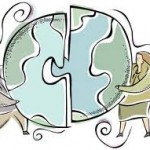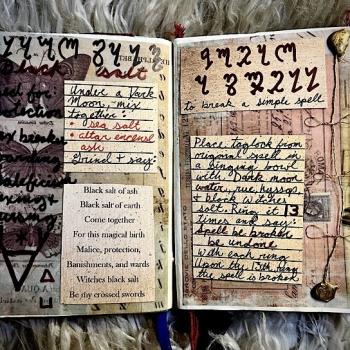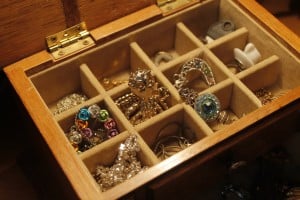My good friend Peter Dybing started a conversation on his blog several days ago that is really important to me. I was on the Pagan Musings Podcast and was talking about this very topic because I was referred to as one of the “new BNP’s”. Not that the podcast did anything wrong, but the thought made me cringe. I have never publicly been called any type of BNP, only teased by my closest friends. And yet the conversation from the interview and Peter’s blog, presents a view point that I agree with. The use of of the label BNP is not helpful to the greater needs within the Pagan community. In my opinion, the need that serves the whole of the community is an ability to be one with each other in worship, celebration and in growth.
The term Big Named Pagan has become a part of modern Pagan culture. I think part of what I do not like is the separation from community that happens when someone is labeled as different from others. I see community as a group of people that have common interests or beliefs, and are working together to achieve or celebrate those commonalities. Part of the power of that is the knowing that we are all in this together; good, bad or indifferent. It is the process of co-existence that motivates us to work towards the betterment of our society. The labeling of certain people out of those community members means that there is a separation and they are then given this elitist type position within the community. How does this further empower or promote the community voice? How does this encourage everyone to embrace the responsibility of the outcome of the collective people? I do not believe it does, and that it is counterproductive at best.
When someone speaks against the BNP title, it is often confused with an unwillingness to accept leadership responsibilities. This is far from the truth in my opinion. Leadership does not bother me, work does not bother me. I am not afraid to get my hands dirty and “put my money where my mouth is”. The societal culture of separation is one that goes beyond Paganism. It is a culture that is deeply ingrained in American culture and our history together on this land. We have always needed a leader, a ruler, a decision maker or an enforcer. We are conditioned to look for those who are more worthy than the average person to hold the torch.
And just like with American politics, we elect those people and then we tear them down once they are in office. We forget that before given the title, they were mothers, fathers, sons, daughters, workers, voters, and community members. Low and behold, everyone that receives a label of such is still a real life person that benefits from their active participation in the process of community.
Why do we do this to our community leaders? Why do we build them up, thrust importance onto them, push them away from community and then blame them for not fulfilling our needs? Who is responsible for fulfilling our personal needs? Why do we twist certain types of leadership or expression into the dysfunctional, distorted culture mold of our American history; basing worth in spotlight value?
Social work theories point to many systems that make sense of this. Conflict theory being one of them. Conflict theory looks at social groups and structures that naturally create conflict over limited resources. Then the real question we should look at is one of limited resource. What is so limited?
I have seen a limited resource on personal worth within society, and also within the Pagan community. Our community is a microcosm of larger societal issues, meaning that we are a perfect representation of the larger whole; beauty and issues included. Our smaller version of the whole shows the same struggles with identity, and finding importance individually and collectively. People place value on titles, labels, categories, associations, teachers, traditions, physical appearances, or even practices instead of placing value on ourselves. We have the automatic response that something outside of ourselves will define who we are… or who we are not. The limited resource might just be a base lack of personal and cultural community worth.
Society structures of belief between the “haves” and the “have nots”, the worthy and the unworthy, is based on the history of value system within our society. We define the importance of people based on outdated moral information and judge them by standards that often no longer apply. Social work theory’s often refers to American values that include individualism, protestant work ethic, egalitarianism and social Darwinism. These values have been a part of our foundation and become a part of our cultural conditioning as Americans. And so it is my belief that we unconsciously view our small society through the glasses of a history rich in separation, and with a strong sense of identifying the values of one another to indicate importance.
I understand this and yet it saddens me to see us unconsciously, and sometimes consciously, use divisive tactics within our community that will divide more than serve. I am not anti-leadership or some form of structure. I am against blindly applying structures in our community that have proven to be historically harmful to the ability to celebrate our collective worth. Let us be conscious of the unconscious messages we are passing along in our speech and our actions. That is all I am asking.
No one is a small named Pagan to me. I wish everyone could know the awesomeness I have learned from the “small names” as well as those who might be more commonly known. I learn from my coven sisters all the time, for years. My local community teaches me so much. My husband stretches me daily to be a better mother, wife and priestess.
No amount of skill, Pagan fame, publicity, good photos or even incredible writing would make someone effective in isolation. I am not effective with any mission I set out to do by myself, without the skills and support around me . And so I am choosing to recognize the contributions of all people in our Pagan village, including my own. Let’s celebrate and appreciate one another, and grow within ourselves, and within our community, to rebuild our personal and community worth.
And in that process, let us be conscious of our developing vocabulary, so we can be inclusive in our speech. We can choose phrases that do not include the opposite as somehow smaller or less. We can consciously select ways to refer to one another that continue the thread of community.


















